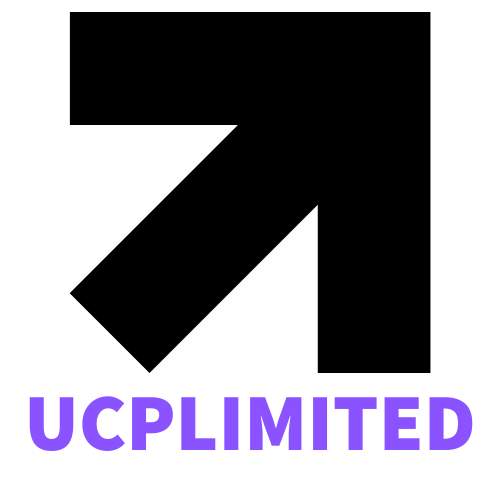Navigating the legal landscape can feel like finding a needle in a haystack, especially when that needle is hidden amidst a mountain of jargon and paperwork. Enter the legal hub, your trusty compass in the chaotic world of law. Whether you’re a seasoned legal eagle or just dipping your toes into the legal waters, a legal hub offers a wealth of resources designed to demystify the process. After all, who wouldn’t want a one-stop shop for all things legal? So, buckle up as we take a deep jump into the realm of legal hubs, where clarity reigns and confusion takes a backseat.
Table of Contents
ToggleWhat Is a Legal Hub?

A legal hub serves as a centralized online platform that provides easy access to a plethora of legal information and resources. Essentially, think of it as a digital library where legal practitioners, students, or even the curious public can gather an array of documents and insights about various legal topics. They encompass everything from case law and statutes to articles written by professionals in the industry. The goal? To ensure that users don’t have to scour the internet aimlessly when searching for legal answers.
Legal hubs can often be categorized into different styles based on their intended audience. While some focus on legal professionals, offering advanced resources such as research databases, others cater to laypersons, simplifying legal jargon into digestible pieces. This makes legal help more accessible than ever before.
Types of Legal Hubs
Legal hubs come in a variety of shapes and sizes, each designed to meet specific needs. Here are the primary types of legal hubs you may encounter:
- Professional Legal Hubs: These are tailored for lawyers and legal scholars who require in-depth legal resources. They may include research tools, case law databases, and legal journals.
- Consumer-Focused Legal Hubs: Aimed at the general public, these hubs translate complex legal information into easily understandable language. Here, individuals can find guides on topics such as divorce, personal injury, and criminal law.
- Niche Legal Hubs: Focusing on specialized areas, like intellectual property or environmental law, these platforms gather detailed resources and expert opinions to inform targeted audiences.
- Community Legal Hubs: Often sponsored by nonprofit organizations, these hubs provide local legal information and support to underserved communities, helping individuals navigate legal challenges without the high costs typically associated with legal advice.
Key Features of an Effective Legal Hub
Not all legal hubs are created equal. For a legal hub to truly shine and deliver user satisfaction, it should incorporate several key features:
- User-Friendly Interface: Navigating a legal hub should be as easy as pie. A clear layout allows users to quickly find the information they need, reducing frustration and time spent searching.
- Comprehensive Resources: An effective hub offers a wide array of resources, including articles, templates, statutes, and case law, ensuring that users have all the necessary tools at their fingertips.
- Search Functionality: A powerful search engine within the hub enables users to find relevant documents or articles using keywords, phrases, or topics, elevating the accessibility of information.
- Regular Updates: Laws and regulations are ever-evolving, so a competent legal hub is consistently updated to provide the most current information.
- Expert Contributions: Featuring articles or resources created by experienced legal professionals adds credibility and ensures that the information is reliable.
Benefits of Using a Legal Hub
Utilizing a legal hub presents numerous advantages, making it an invaluable resource for anyone dealing with legal matters:
- Time Efficiency: From legal research to accessing templates, a well-structured hub saves time by providing essential resources all in one place.
- Cost Savings: Many legal hubs offer free or low-cost resources, reducing the need for expensive consultations with lawyers, especially for straightforward matters.
- Increased Understanding: Simplified explanations of legal concepts help demystify the law for the average person, empowering them to make informed decisions.
- Access to Current Information: Legal information on hubs is frequently updated, helping users stay informed about the evolving legal landscape.
- Convenience: Users can access information from anywhere with an internet connection, enabling remote consultation and research at their convenience.
How to Choose the Right Legal Hub for Your Needs
Choosing the right legal hub can feel like hitting a moving target, especially with so many options. But, several factors can help streamline the selection process:
- Identify Your Needs: Determine what specific legal information or resources you require. Are you looking for consumer advice, professional insight, or comprehensive research tools?
- Evaluate the Quality of Content: Check whether the hub has contributions from reputable legal experts. Quality content is essential for trustworthy information.
- Assess Accessibility: Ensure the hub is user-friendly and mobile-accessible, so you can easily browse on any device.
- Look for Reviews: User experiences and testimonials can provide valuable insight into the effectiveness of a legal hub.
- Check for Updates: A good legal hub is regularly updated to reflect current laws and regulations, ensuring users can rely on the information provided.
Common Legal Resources Available in a Legal Hub
Legal hubs typically house a variety of resources, each designed to assist users in their legal journey. Some of the most common resources include:
- Legal Articles: Educational content on a wide range of legal topics authored by experts.
- Forms and Templates: Ready-to-use documents that users can modify for their specific needs, such as contracts or wills.
- Case Law Database: Access to legal precedents that inform users of past judicial decisions, aiding in research and understanding.
- Legal Blogs: Blogs that discuss current trends and updates in the legal arena, providing a fresh perspective on evolving issues.
- FAQs and Guides: Common questions answered and step-by-step guides help navigate specific legal processes.
The Future of Legal Hubs
What’s next for legal hubs? As technology advances, the future promises even more exciting innovations in how legal information is provided. Here are some predicted trends:
- AI Integration: The use of artificial intelligence could improve search functionalities, offering personalized suggestions based on user behavior.
- Interactive Features: Interactive tools like legal chatbots could guide users through processes and answer preliminary questions in real-time, enhancing user engagement.
- Expanded Resources: Legal hubs might increasingly offer video tutorials, webinars, and live Q&A sessions with legal experts, providing diverse formats for learning.
- Global Access: As the legal landscape becomes more interconnected, legal hubs may provide international legal resources, helping users navigate laws across different jurisdictions.









